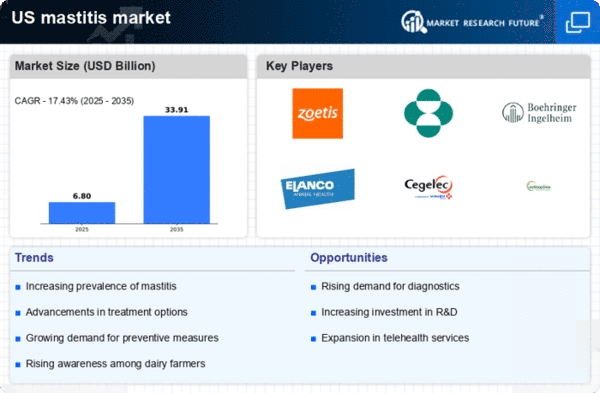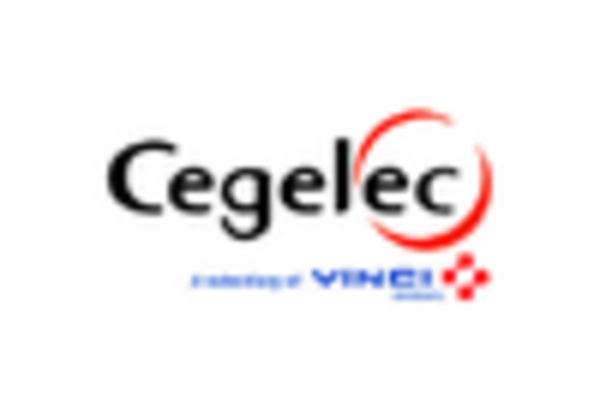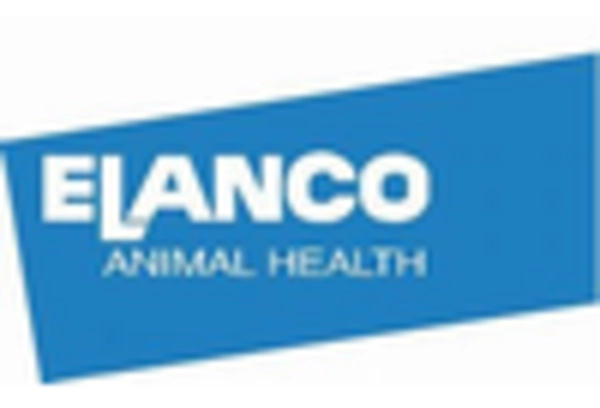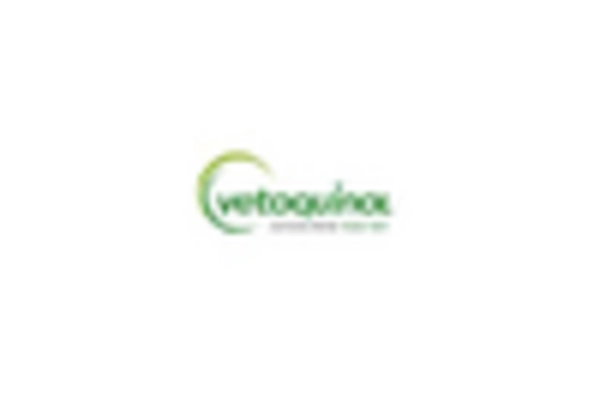Increasing Awareness of Animal Health
The mastitis market is experiencing a surge in awareness regarding animal health, particularly among dairy farmers. This heightened consciousness is driven by educational initiatives and outreach programs aimed at promoting best practices in herd management. As farmers become more informed about the implications of mastitis on milk production and animal welfare, they are more likely to invest in preventive measures and treatment options. This trend is reflected in the growing demand for veterinary services and products designed to combat mastitis. In 2025, the market for mastitis-related products is projected to reach approximately $1.5 billion in the US, indicating a robust growth trajectory fueled by this increased awareness.
Regulatory Support for Animal Welfare
The mastitis market is influenced by increasing regulatory support aimed at enhancing animal welfare standards. In the US, various governmental bodies are implementing stricter regulations regarding the treatment and prevention of mastitis in dairy cattle. These regulations often require farmers to adopt more humane and effective practices, which in turn drives the demand for advanced mastitis management solutions. Compliance with these regulations necessitates investment in better diagnostic and treatment options, thereby propelling market growth. The financial implications of non-compliance can be substantial, further motivating farmers to prioritize mastitis management. This regulatory environment is expected to contribute to a market valuation of approximately $1.8 billion by 2026.
Rising Demand for Organic Dairy Products
The mastitis market is experiencing a shift in consumer preferences towards organic dairy products. As consumers become more health-conscious, there is a growing demand for milk and dairy products that are produced without the use of antibiotics and hormones. This trend is prompting dairy farmers to adopt more stringent mastitis management practices to ensure compliance with organic certification standards. Consequently, the market for mastitis management solutions is likely to expand as farmers seek effective ways to maintain herd health while meeting organic production requirements. The organic dairy segment is projected to grow at a CAGR of 8% over the next five years, indicating a robust opportunity for the mastitis market.
Economic Impact of Mastitis on Dairy Production
The mastitis market is significantly affected by the economic implications of mastitis on dairy production. Mastitis not only leads to decreased milk yield but also increases veterinary costs and reduces the overall profitability of dairy operations. The financial burden associated with mastitis can be substantial, with estimates suggesting that it costs the US dairy industry over $2 billion annually. This economic impact drives farmers to seek effective solutions for mastitis prevention and treatment, thereby stimulating growth in the mastitis market. As awareness of these economic factors continues to rise, investments in mastitis management technologies and practices are expected to increase, further propelling market expansion.
Technological Advancements in Treatment Options
The mastitis market is witnessing significant advancements in treatment technologies, which are reshaping the landscape of mastitis management. Innovations such as targeted therapies and improved formulations of existing treatments are becoming more prevalent. These advancements not only enhance the efficacy of mastitis treatments but also reduce the time required for recovery, thereby minimizing economic losses for dairy farmers. The introduction of new diagnostic tools that allow for quicker identification of mastitis cases is also contributing to this trend. As a result, the market is expected to grow at a CAGR of around 6% over the next five years, reflecting the impact of these technological improvements on the mastitis market.
















